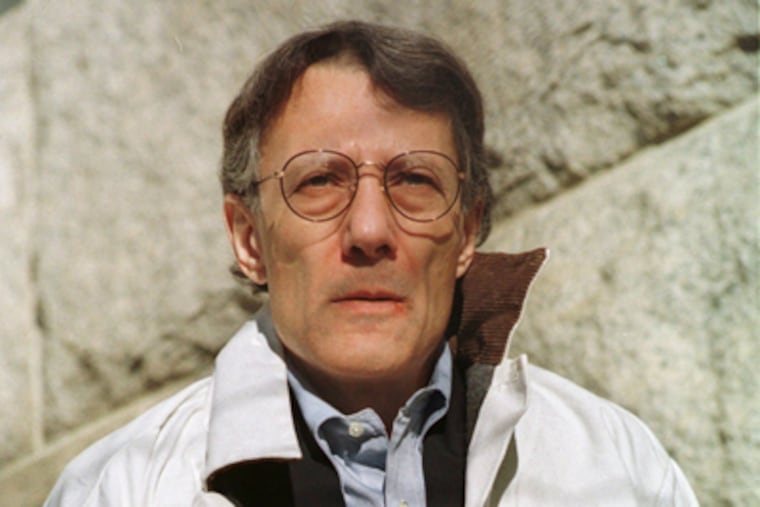Convicted Delaware killer Capano dies in prison
Thomas J. Capano, 61, a rich and influential Wilmington lawyer who fell from the halls of power to a death-row cell for murdering his former mistress, died behind bars Monday.

Thomas J. Capano, 61, a rich and influential Wilmington lawyer who fell from the halls of power to a death-row cell for murdering his former mistress, died behind bars Monday.
Capano was found in his cell at the state prison near Smyrna, Del., where he was serving a life sentence for the 1996 murder of Anne Marie Fahey. His original death sentence was overturned in 2006.
The slaying of Fahey, 30, the scheduling secretary for Gov. Thomas Carper, became a sordid yet riveting tale that resonated far beyond Wilmington, inspiring at least four books and a TV miniseries.
At the center of the drama was Capano, scion of a Wilmington family whose father, an immigrant carpenter, turned construction into wealth.
Capano, one of four sons, became a managing partner of the Saul Ewing law firm and a player in Delaware politics, advising the powerful and serving as Gov. Mike Castle's general counsel in the early 1990s.
In private, though, the married father of four was a manipulative and jealous philanderer, prosecutors said, choosing paramours he sensed were vulnerable. Among them was Fahey, 17 years his junior, a tall and vivacious but insecure woman who struggled with anorexia.
On June 27, 1996, Capano took Fahey to dinner at Panorama, a Philadelphia restaurant, trying to persuade her to resume an affair she had ended the previous fall. A month earlier, Fahey wrote in her diary that she had brought "closure" to her relationship with Capano, describing him as a "controlling, manipulative, insecure, jealous maniac."
Later than night, prosecutors said, Capano shot Fahey to death in a large house he had rented after separating from his wife of 23 years.
He then dumped Fahey's body 70 miles offshore in the Atlantic Ocean, in a shark-infested area known as "mako alley."
Fahey's body was never found. For more than a year, the case frustrated investigators, who had no body, no weapon, and no witnesses.
Ultimately, Capano's guilt was sealed by his own brothers' words.
On Nov. 8, 1997, Gerard Capano, under pressure from authorities, admitted using his fishing boat to help his older brother dispose of the body, turning in time to see a foot disappearing into the sea.
Two days after Gerald Capano cracked, another brother, Louis Jr., corroborated parts of his brother's story.
At his 1999 trial, Thomas Capano defied his own lawyer's advice and took the witness stand, spending more than a week professing his innocence.
He admitted disposing of Fahey's body, but said he had done so to protect a second mistress who he said shot Fahey in an accident. He accused the second woman of showing up at his house in a jealous rage, threatening to kill herself, and shooting Fahey as Capano struggled to wrest the gun away from her.
The woman, Deborah MacIntyre, testified that she and Capano had an affair for many years, but denied being present the night of the slaying.
A jury convicted Capano of first-degree murder and recommended in a 10-2 vote that he receive the death penalty. Superior Court Judge William Swain Lee complied, berating Capano as a "malignant force" and a "ruthless murderer" whose "only remorse is for himself."
The Delaware Supreme Court overturned the death sentence in January 2006 after Capano's lawyers argued that the jury's vote to condemn him had to be unanimous.
Throughout the legal battles, Capano never apologized to Fahey's loved ones, said lawyer Colm Connolly, who prosecuted the case and later served as U.S. attorney for Delaware.
"My first thought is for the Faheys, because they have to be reminded again about a life cut short, a terrible loss," Connolly said Monday. "I have also thought about what a waste of a life Tom Capano led, and the incredible amount of suffering, harm, and sadness he caused."
Capano had been in poor health for several years, and no foul play was suspected in his death.
Capano's lawyer and members of Fahey's family did not return calls seeking comment.
Robert Fahey, Anne Marie Fahey's brother, told the Associated Press that Capano's death was "long overdue." Because Capano never admitted guilt and "ruined many people's lives, my guess is that he went straight to hell, and that's where he belongs," Fahey said.
Even a decade after the slaying, the Capano family name could still roil emotions in Delaware and beyond.
In 2006, Louis Capano Jr. - who had helped destroy evidence in his brother's murder case - made donations of $1 million to two Wilmington Catholic schools that members of the Capano and Fahey families had attended. A plan to name buildings at each school for the Capano family created such an outcry that one of the schools reduced the tribute to a plaque.
Capano's death "does bring some finality," Connolly said, "but I don't think it will ever bring total justice to the loss the Faheys suffered."